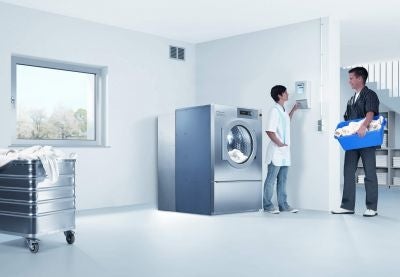Your support helps us to tell the story
From reproductive rights to climate change to Big Tech, The Independent is on the ground when the story is developing. Whether it's investigating the financials of Elon Musk's pro-Trump PAC or producing our latest documentary, 'The A Word', which shines a light on the American women fighting for reproductive rights, we know how important it is to parse out the facts from the messaging.
At such a critical moment in US history, we need reporters on the ground. Your donation allows us to keep sending journalists to speak to both sides of the story.
The Independent is trusted by Americans across the entire political spectrum. And unlike many other quality news outlets, we choose not to lock Americans out of our reporting and analysis with paywalls. We believe quality journalism should be available to everyone, paid for by those who can afford it.
Your support makes all the difference.While a clothes line may be the most environmentally sound method of drying it is not always practical - a new dryer which recycles hot air could reduce the energy required to get shirts dry.
The first commercially available tumble dryer with a short cycle time was unveiled October 15 at the ExpoDetergo in Milan; produced by German appliance manufacturer Miele, the PT8257 and PT 8337 WP models could reduce electricity consumption by up to 60 percent.
The difference between these new models of tumble dryers and traditional machines is that whereas dryers usually vent unused energy and heat, the new Miele machines recycle the hot air and use it to pre-heat cold air, thus saving energy. The dryer is designed for use by small businesses such as family-run hotels or bed and breakfasts.
Both models of tumble dryer are expected to be launched early in 2011 across Germany, Austria, Italy and Switzerland; other countries are expected to follow later in the year. As of October 15 prices are not available.
Despite the energy efficiency of Miele's new tumble dryers, most environmentalists argue that the most eco- friendly way to dry clothes is by hanging them outside on a line. However this traditional approach to laundry presents practical problems to urban dwellers or small business owners and has even come under attack in America where some community associations have banned clothes lines claiming that they are unsightly and could lower property prices.
While drying clothes outside may be impractical for some, it is estimated that by switching to more energy efficient appliances people across the developed world could reduce their energy consumption by around 30 percent. Energy efficient household appliances can be identified by either the European Union Energy label, a flower stalk with the euro (€) symbol surrounded by stars, or by the label Energy Star rated.
ExpoDetergo in Milan is on until October 18, for more information see: http://www.expodetergo.com/en/page/expodetergo-2010

Join our commenting forum
Join thought-provoking conversations, follow other Independent readers and see their replies
Comments